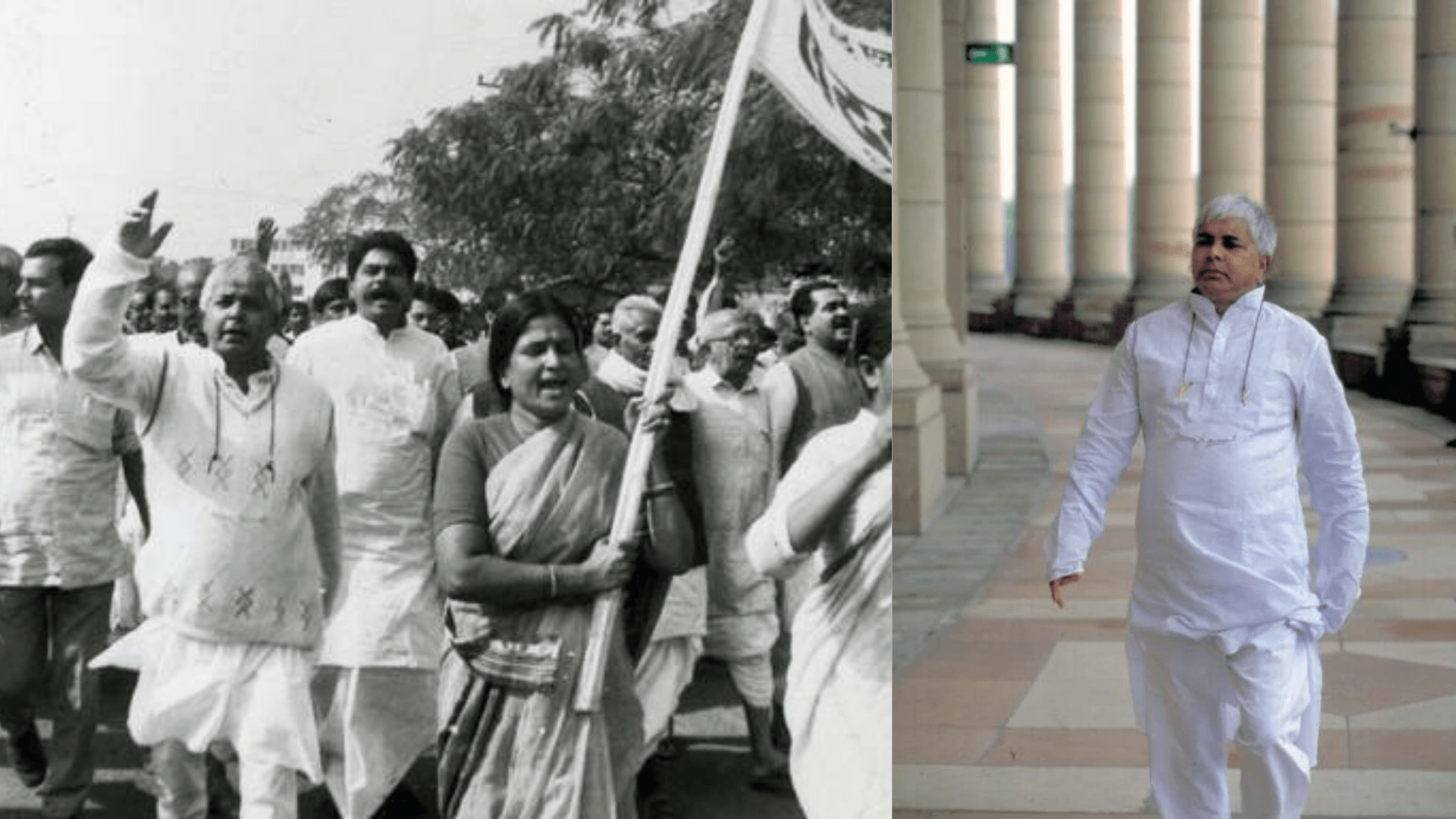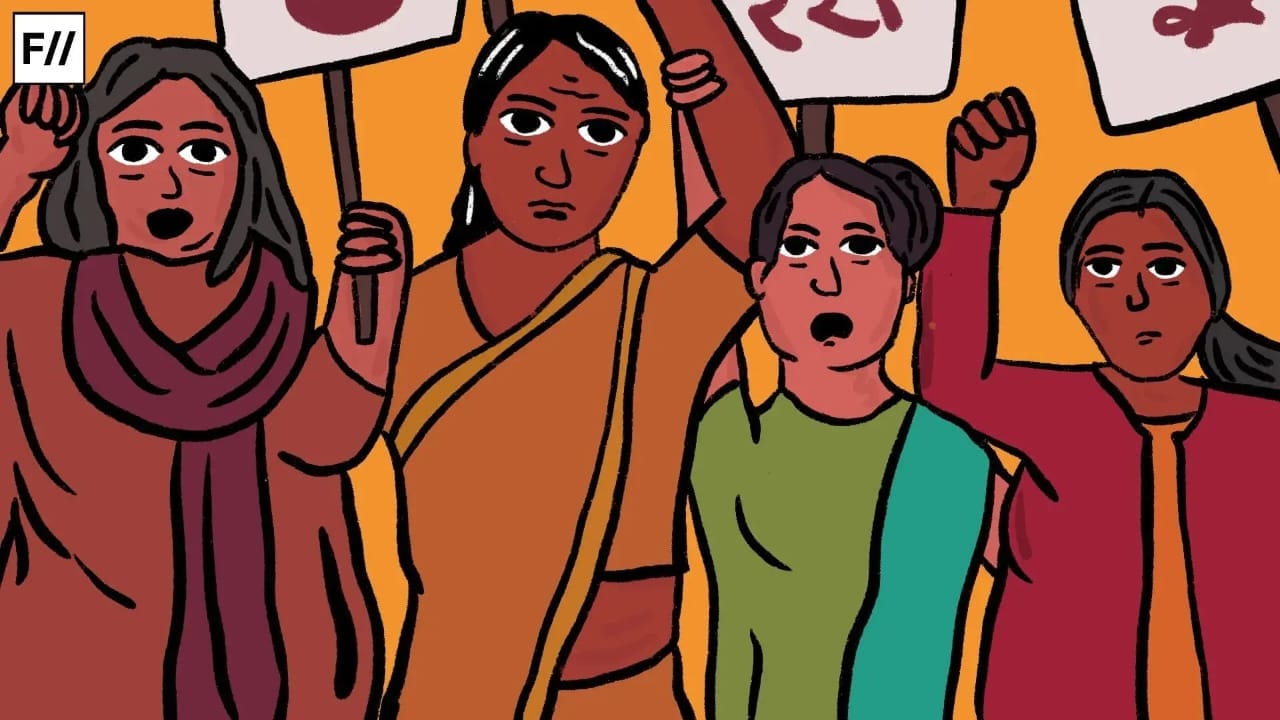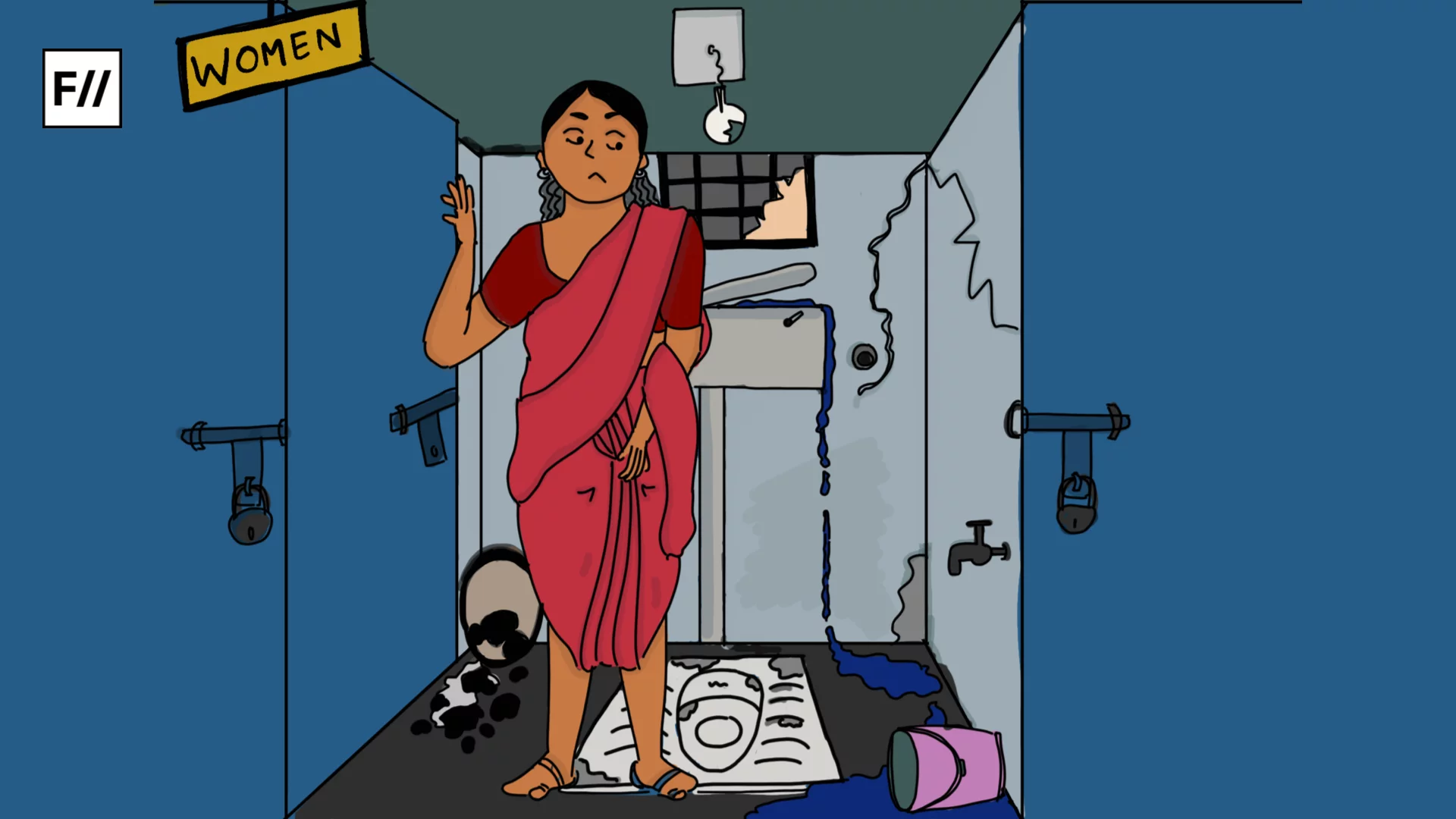“When our employee demands were being discussed, the topic of three-day menstrual leave for women was raised. Lalu Prasad listened and stayed quiet for five minutes. He then spoke in agreement saying two-day leave can be granted and asked his officer to note this down.” Rambali Prasad, general secretary of the Bihar Non-Gazetted Employees’ Federation, recollects the meeting with the former Bihar Chief Minister Lalu Prasad Yadav.
28th May is observed as Menstrual Hygiene Day, but across the globe, most companies have not yet instituted the policy of paid period leaves. This article aims to look at an initial, revolutionary step regarding the same in India.
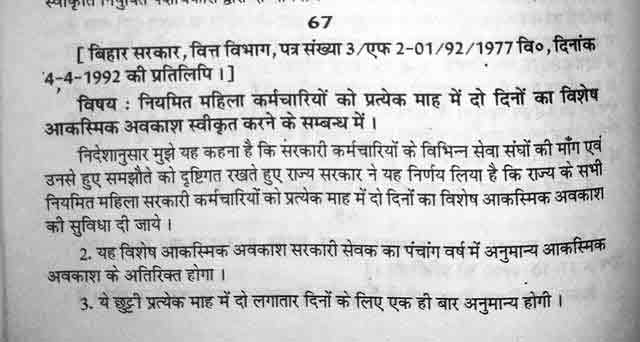
Period leaves: Sexism, barriers to implementation
While Yadav was in his first tenure as CM, nearly six lakh employees of the Bihar government had gone on strike, raising numerous demands. These included improved salaries, promotions, etc. Comprising all the issues, the negotiations with the government went on for four days. However, protesters recall that when the topic of menstrual leave came, Lalu Yadav listened patiently and immediately granted two-day paid period leaves per month in addition to the pre-existing leaves. There was no debate, no negotiation.
Given the socio-economic, casteist climate of our society, only ten per cent of workers on strike were women. This included nurses, teachers, typists, clerks, and other organised-sector working women. Of these, a considerable percentage of them were dominant-caste women, given education has been and continues to be gatekept by the upper-castes.
Lalu Yadav took a step that, in the status quo, would have initially comforted dominant-caste women and consequently their families. In later years, the same dominant caste women and their families taunted and criticised him, asking him to return to his caste-based job of herding and milking cattle.
The Mandal Commission Report providing rightful, affirmative action to the caste-oppressed OBCs was again, a bare minimum policy step taken too late because the previous central governments chose not to. Even today, only two out of the forty recommendations of the Mandal Commission have been implemented after grotesque heckling by the so-called upper castes. In such a scenario, it is quite derivative as to why mainstream media would not highlight the period leave policy of Lalu Prasad Yadav, a leader from an oppressed caste

The order was passed on the 2nd of January, 1992. However, it took time and effort for it to reach the masses. This is because the everyday battle of resisting period taboos was being fought by women in their homes and workplaces. As per the National Family Health Survey, almost 50 per cent of women aged 15-24 use cloth during menstruation. Mere legislation is the onset but not the definite success point of any societal confrontation.
When the Patna University Teachers’ Association went ahead with the implementation of this policy, the situation was daunting for women professors. The circumstances were excruciating, especially for those teaching in co-educational spaces.
Professor Bharti Kumar, who is considered the first woman to take period leaves at the university level, was a lecturer of history at Patna University. The Patna University Teachers Association(PUTA) and the Federation of University(Service) Teachers Association Of Bihar had been a part of the protests. Kumar and the members of the association were aware of the order pertaining to period leaves. Kumar says that even after the government order had been passed, the university had not put up a notice regarding the same. The file had been randomly placed, and the notice had not yet reached the university. The female teachers had been discussing this leave but were hesitant to take it.
Kumar had decided that she would avail the leave. When the time for her menstrual cycle came, she wrote an application mentioning menstruation as the reason and gave it to her male Head Of Department. When the HOD signed the application and forwarded it to the clerk, she sensed contempt, as if this is freeloading extended to women. Later, when she went to inform the Teachers’ Ladies Club, other female teachers also said that they would apply for it from now on.
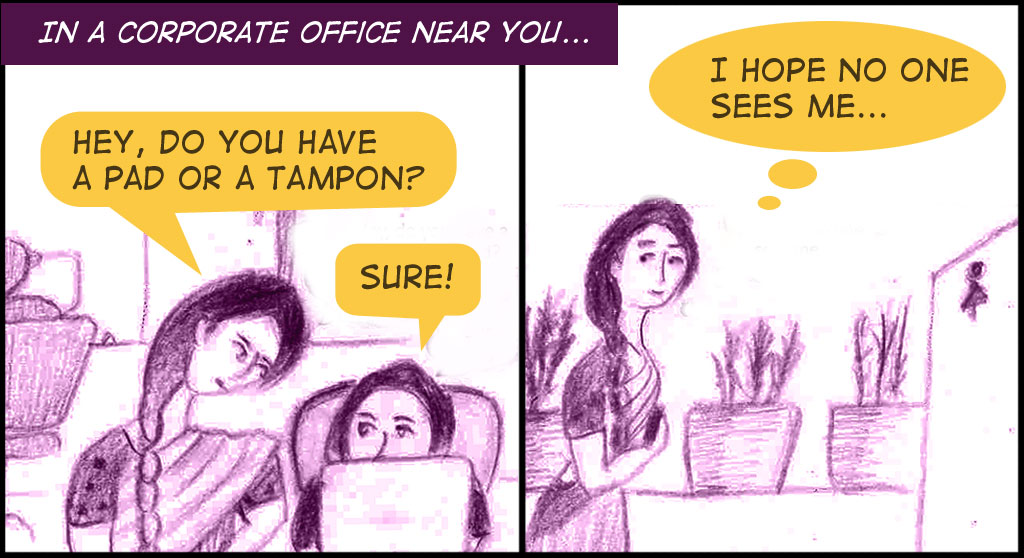
Even a cursory look at the records of inefficiency and corruption proves that men who have set professional records of being laidback,question the efficiency of women taking period leaves. However, globally speaking, Japan, with one of its most efficiently working systems and society, has had a policy since 1947 for women to avail period leaves. The Soviet Union had a similar policy, and currently, Australia, China, England, and South Korea offer period leaves.
Menstruation is a normal biological phenomenon, and the burden of hiding it should not be on menstruators. Workplaces, which measure work in “man-hours” and have male-centric systems in place, need to take affirmative action to incorporate the needs of menstruators. The policy and physical infrastructure of workplaces need to be more inclusive for women and marginalised genders, as well as disabled individuals.
Lalu Prasad’s period leave policy: Casteism, lack of media coverage
The vice-president of the Bihar Citizen’s Council at the time, political leader Shivanand Tiwari, says that back then, the oppressor-caste dominated media was single-handedly focused on opposing the Mandal Commission, and did not publicise this decision of menstrual leaves.
The Mandal Commission Report providing rightful, affirmative action to the caste-oppressed OBCs was again, a bare minimum policy step taken too late because the previous central governments chose not to. Even today, only two out of the forty recommendations of the Mandal Commission have been implemented after grotesque heckling by the so-called upper castes. In such a scenario, it is quite derivative as to why mainstream media would not highlight the period leave policy of Lalu Prasad Yadav, a leader from an oppressed caste.
After a notification was issued, Bihar became the first state to introduce such affirmative action for menstruating women. Raj Kumar, the Director of Bihar Social Welfare Department, states that as per their need, women can send information to their seniors and avail themselves of the leave. After menopause, they can also decide to stop taking the leave. This policy has also been extended to contractual workers with the Bihar government.
While the Bihar government, under the leadership of former Chief Minister Lalu Prasad Yadav, has led the way towards the affirmative action of instituting paid menstrual leaves, urban, affluent, dominant-caste administrators are yet to follow suit. While they mock Lalu Prasad Yadav’s accent as not “elite enough“, they choose to ignore the progressive step of paid period leaves initiated by him

The initiation of paid period leaves is a bare minimum policy against an already sexist, transphobic work environment that disadvantages women and other employees from marginalised gender identities with gender wage gap, sexual harassment, and heckling in promotions. Furthermore, discussions around paid period leaves need to take menstruators across all genders into account and provide them affirmative action. The discourse on period leaves have largely been trans-exclusionary, and steps need to be taken to correct the same.
While speaking about the functioning of the system of paid period leaves in Bihar, the women government employees say that it is an independent decision of each woman when she decides to avail herself the leave, and they are answerable to no one about when they choose to do so. This practice of period leaves being an independent decision taken by women exercising bodily agency rather than being under constant scrutiny is much-needed. Constant policing and scrutiny of women’s bodies is a violation of the privacy and autonomy of women.
Shashi Yadav, who is the general secretary of the All India Progressive Women’s Association in Bihar, conversed with several women working under the Bihar government and while they mentioned that they have been able to avail this leave, they mention that most male colleagues continue to pass sexist comments and harass them. In 2017, a Lok Sabha member from Arunachal Pradesh, Ninong Erring, proposed the Menstruation Benefit Bill 2017, and however, no decision has been taken on that yet.
While the Bihar government, under the leadership of former Chief Minister Lalu Prasad Yadav, has led the way towards the affirmative action of instituting paid menstrual leaves, urban, affluent, dominant-caste administrators are yet to follow suit. While they mock Lalu Prasad Yadav’s accent as not “elite enough“, they choose to ignore the progressive step of paid period leaves initiated by him.
Also read: Panchayat Web Series: A Brahmin Cast And Crew Romanticises A Meritless All-Brahmin Local Government
Featured Image Source: The Hindu Centre, India Today
About the author(s)
Ankita Apurva was born with a pen and a sickle.
